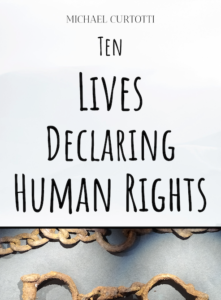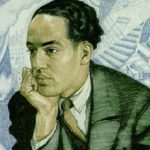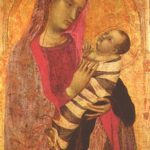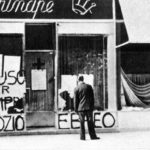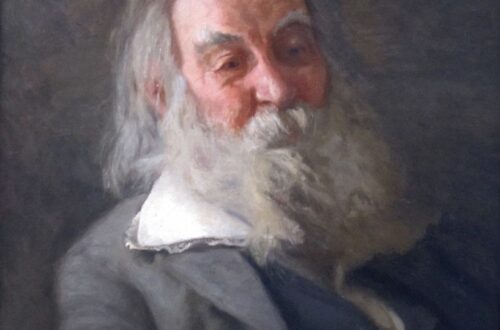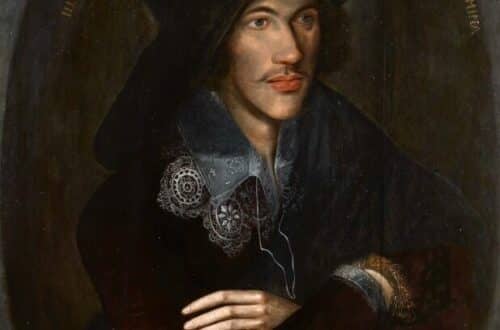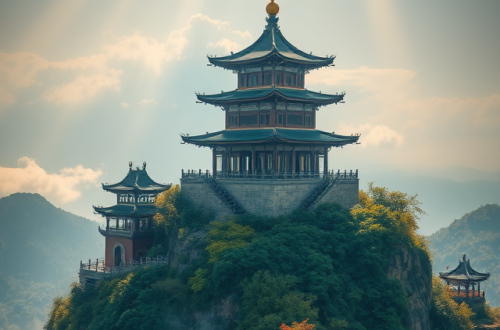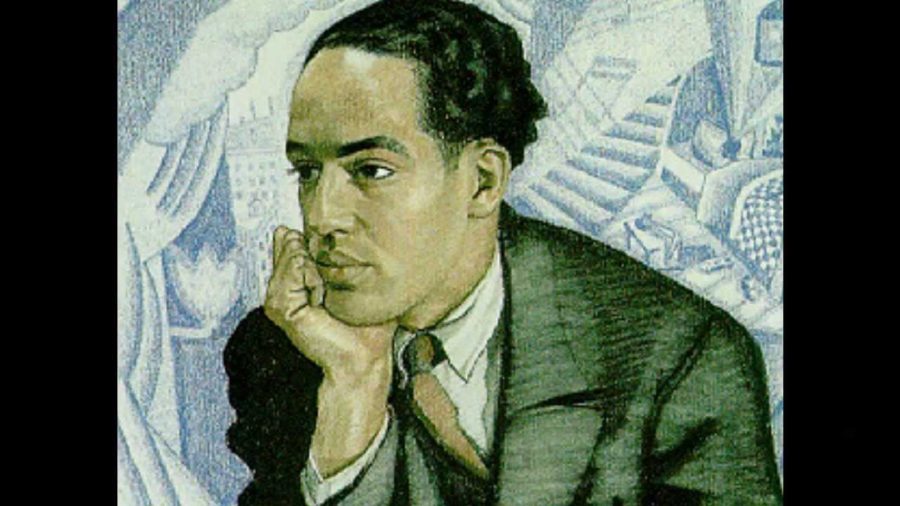
Langston Hughes – poet and prophet in translation
Some years ago I wrote an article about Langston Hughes and his poetry. Here I would like to present Italian translations of some of his poetry. The first is a brief epigram. The second is an extract from his poem Let America be America again. The third is I Dream a World, a poem which he included in his opera Troubled Isola.
Qualche anno fa ho scritto un articolo su Langston Hughes e la sua poesia. Qui vorrei presentarne una traduzione italiana. La prima è un epigramma breve. Il secondo è un brano dal suo poema O, che l’America di nuovo America sia. Il terzo è Sogno un mondo, un poema che ha incluso nella sua opera Isola Turbata.
As it happens, Langston Hughes was a world traveller, and Italy was on his itinerary. His poetry was global too and was first published in Italy in 1937. After the war his poetry attracted the attention of a small group of Italian intellectuals. Both his larger works and poems began to be translated into Italian, for example The Negro Speaks Rivers and Minstrel Man.
Come si dà il caso, Langston Hughes era un viaggiatore mondiale, e l’Italia era sul suo itinerario. Anche la sua poesia divenne globale e fu pubblicata per la prima volta in Italia nel 1937. Nel dopoguerra la sua poesia ha attirato l’interesse di un piccolo gruppo di intellettuali italiani. Sia le sue opere più grandi che le sue poesie sono state tradotte in italiano, per esempio Il nero parla fiumi e Uomo menestrello.
The writer Cesare Pavese introduced Langston’s poetry to the Italian audience as part of a broader project exploring American literature. It was not until 1960, that a book entirely devoted to Langston Hughes’ poetry appeared in Italy. It was a bilingual anthology of 32 of his poems. His play Black Nativity, was performed in Spoleto in 1962. After his death, a larger anthology of his poetry was published in 1968 by Stefania Piccinato. This was followed by a third, even larger anthology. In the 1970s, she published a critical study of Hughes’ poetry.
Anche lo scrittore Cesare Pavese ha introdotto la poesia di Langston Hughes al pubblico italiano, come parte di un più grande progetto che esplora la letteratura americana. Non fu prima del 1960, che un intero libro dedicato alla poesia di Langston Hughes apparve in Italia. Era una antologia bilingue di 32 delle sue poesie. Il suo dramma Natività nera, fu rappresentato a Spoleto nel 1962. Dopo la sua morte, una più ampia antologia fu pubblicata da Stefania Piccinato nel 1968. Questa è stata seguita da una terza antologia che era anche più ampia. Negli anni settanta, Piccinato ha pubblicato un’analisi critica della poesia di Hughes.
Oh, God of Dust and Rainbows,
Help us to see
That without the dust the rainbow
Would not be.
by Langston Hughes
Oh, Dio di Polvere e d’Arcobaleni,
Aiutaci a vedere
Che senza la polvere, l’arcobaleno
Non può esistere.
Italian translation by Michael Curtotti
O, let America be America again—
The land that never has been yet—
And yet must be—the land where every man is free.
The land that’s mine—the poor man’s, Indian’s, Negro’s, ME—
Who made America,
Whose sweat and blood, whose faith and pain,
Whose hand at the foundry, whose plow in the rain,
Must bring back our mighty dream again.
Oh, che l’America, di nuovo America sia —
Questa terra che già mai non fu —
Eppure sarà – per tutti, la terra di libertà
Questa mia terra — di gente povera, di indiani, e di neri, IO —
Che ho fatto l’America,
Con sudore e sangue, con fede e dolore,
La cui mano nella fonderia, il cui aratro nella pioggia,
Devo rinnovare questo nostro grande sogno.
Sure, call me any ugly name you choose—
The steel of freedom does not stain.
From those who live like leeches on the people’s lives,
We must take back our land again,
America!
Certo, mi chiamerai con qualsiasi brutto nome che vorrai —
Ma non si macchia l’acciaio della libertà.
Da loro che vivono come sanguisughe sulle schiene della gente,
Dobbiamo la nostra terra liberare – l’America!
O, yes,
I say it plain,
America never was America to me,
And yet I swear this oath—
America will be!
by Langston Hughes
Oh, sì,
Lo dico chiaro,
L’America non è stata mai l’America per me,
Eppure lo giuro —
L’America sarà!
Italian translation by Michael Curtotti
I Dream a World
Sogno un mondo
I dream a world where man
No other man will scorn,
Where love will bless the earth
And peace its paths adorn
I dream a world where all
Will know sweet freedom’s way,
Where greed no longer saps the soul
Nor avarice blights our day.
A world I dream where black or white,
Whatever race you be,
Will share the bounties of the earth
And every man is free,
Where wretchedness will hang its head
And joy, like a pearl,
Attends the needs of all mankind-
Of such I dream, my world!
by Langston Hughes
Sogno un mondo in cui l’uomo,
Nessun’altro uomo disdegnerà,
Dove l’amore la terra benedirà,
E la pace, i suoi sentieri adornerà,
Sogno un mondo in cui tutti,
Conosceranno la via dolce della libertà,
Dove l’anima non più è indebolita dall’avidità,
Né cupidigia rovini i nostri giorni.
Sogno un mondo dove bianco o nero,
Qualsiasi razza tu sia,
I doni della terra condividerai,
E ogni uomo libero sarà,
E la miseria si vergonierà,
E la gioia, come la perla,
Assisterà ai bisogni di tutta l’umanità
Questo io sogno, il mio mondo sarà!
Italian translation by Michael Curtotti
With grateful thanks to Azzurra Cirrincione for her proofreading of the Italian translation.
Sources
Rubeo, Ugo. “LANGSTON HUGHES’S CRITICAL RECOGNITION IN ITALY.” The Langston Hughes Review, vol. 6, no. 1, 1987, pp. 13–19. JSTOR, http://www.jstor.org/stable/26432751. Accessed 2 Dec. 2024.
Italian proofreading by Azzurra Cirrincione.


